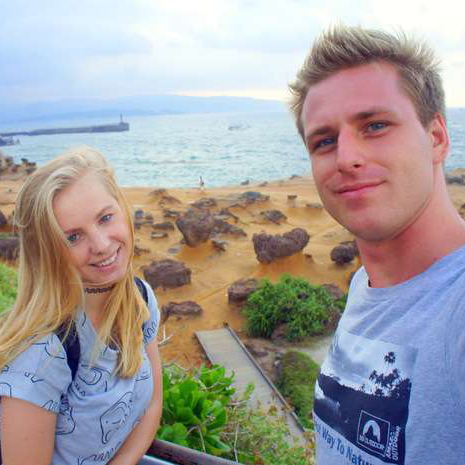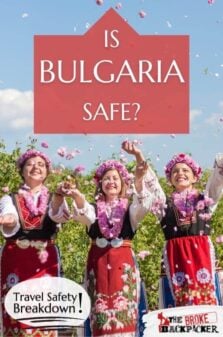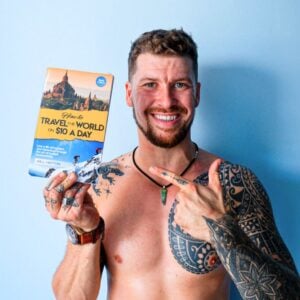Bulgaria is a strong choice for any traveller.
Sandwiched between the Balkans, and operating a direct train line to Turkey, Bulgaria is bursting with character and unexpected flavours. While often overlooked as a tourist destination, this eastern European country brings a collection of satisfying destinations for a great price.
Unfortunately, alongside a stunning variety of architectural influences and great food, Bulgaria has several common pitfalls that can make your trip far more stressful and complicated than it needs to be.
Alongside Bulgaria’s reputation for organised crime, this could have you asking “is Bulgaria safe to visit”?
With that in mind, I’ve created this epic insider’s guide to staying safe in Bulgaria. You’re going to find just about all the information you need to help you achieve top marks in savvy travel, and make sure your Bulgaria visit runs super smoothly.
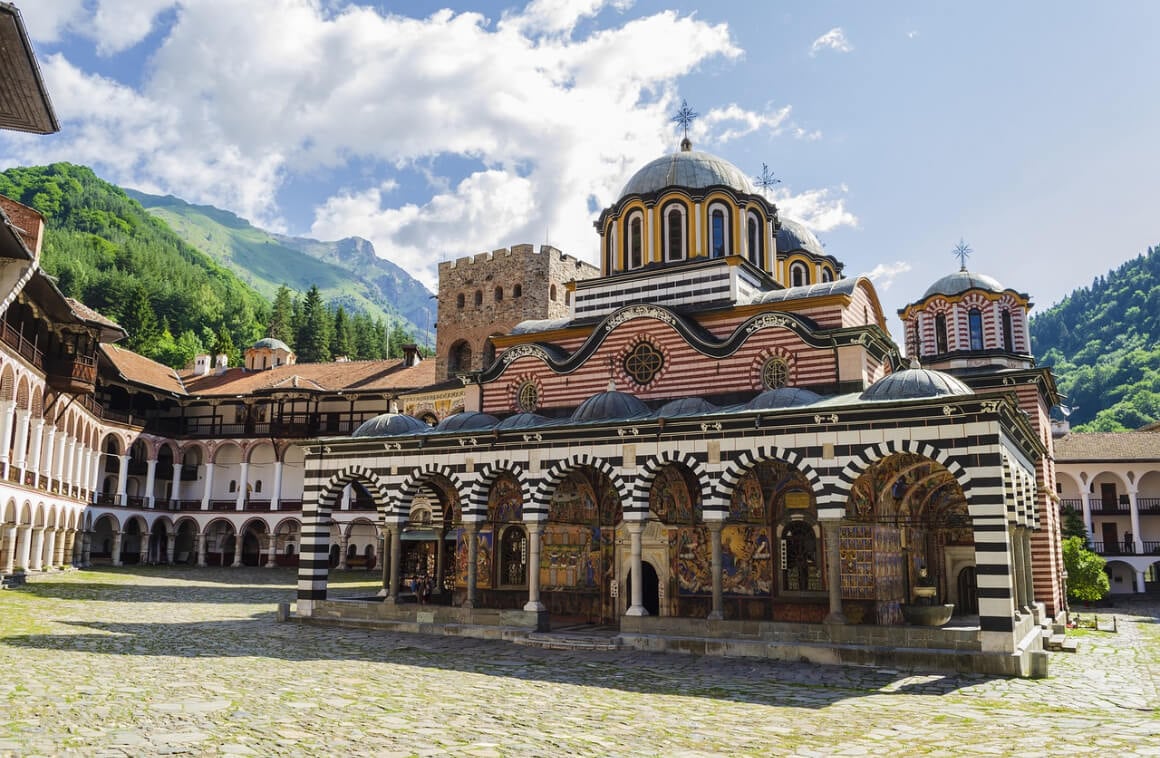
There is no such thing as a perfect safety guide, as things change quickly. The question of “Is Bulgaria Safe?” will ALWAYS have a different answer depending on who you ask.
The information in this safety guide was accurate at the time of writing. If you use our guide, do your own research, and practice common sense, you will probably have a wonderful and safe trip to Bulgaria.
If you see any outdated information, we would really appreciate it if you could reach out in the comments below. Otherwise, stay safe friends!
Updated December 2023

Unlock Our GREATEST Travel Secrets!
Sign up for our newsletter and get the best travel tips delivered right to your inbox.
- Is Bulgaria Safe to Visit Right Now?
- Safest Places in Bulgaria
- 21 Top Safety Tips for Traveling to Bulgaria
- Is Bulgaria Safe to Travel Alone?
- Is Bulgaria Safe for Solo Female Travellers?
- Where to Start Your Travels in Bulgaria
- Is Bulgaria Safe for Families?
- Getting Around Bulgaria
- Crime in Bulgaria
- What to Pack For Your Bulgaria Trip
- Getting Insured BEFORE Visiting Bulgaria
- FAQs on Bulgaria’s Safety
- So, is Bulgaria Safe?
Is Bulgaria Safe to Visit Right Now?
The simple answer to the question is yes, travelling to Bulgaria is safe. In 2022, a total of 10,887,952 international travellers visited Bulgaria based on the country’s National Statistical Institute report. The majority of them had virtually no reported problems.
Despite the country having a few issues, the international community sees Bulgaria as a very safe place to visit. Tourism is, in fact, critical to the country’s economy.
Bulgaria is ranked as one of the most corrupt countries in Europe, and you do hear very rare stories about organized crime, but there are a ton of reasons why you should visit Bulgaria, and these definitely outweigh the setbacks.
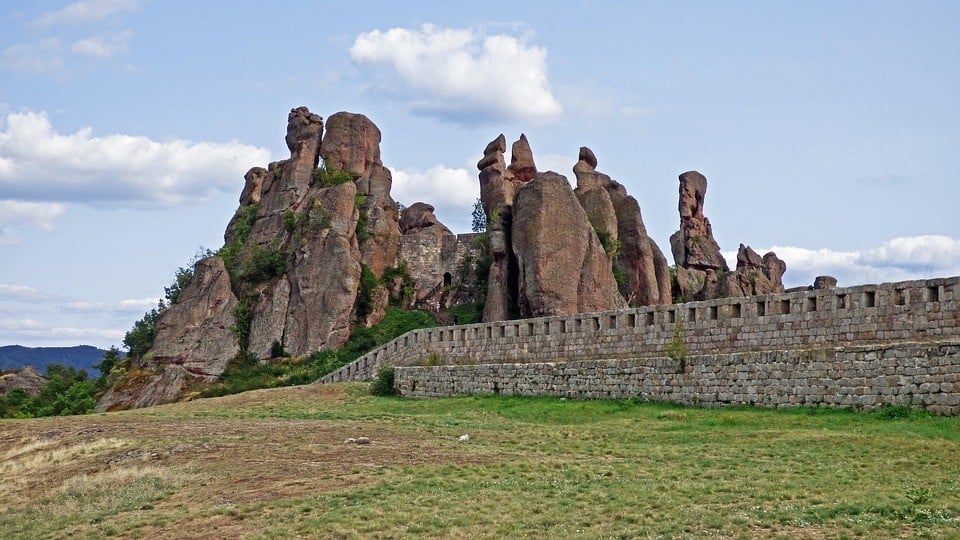
Sadly, there have been instances of targeted robberies within tourist areas, so you should be aware of your surroundings, and take extra care of your belongings within crowds. Muggings and pickpocketing do happen here, but violent crime (especially against tourists) is rare.
Local authorities are generally helpful to tourists, but if something has gone very wrong, contacting emergency consular services will most likely make more of a splash.
Bulgaria is generally a very safe country to visit, and while it does have an edgy/ hardcore side, you shouldn’t experience any trouble, even if you go out frequently.
Check out our detailed where to stay guide for Bulgaria so you can start your trip right!
Safest Places in Bulgaria
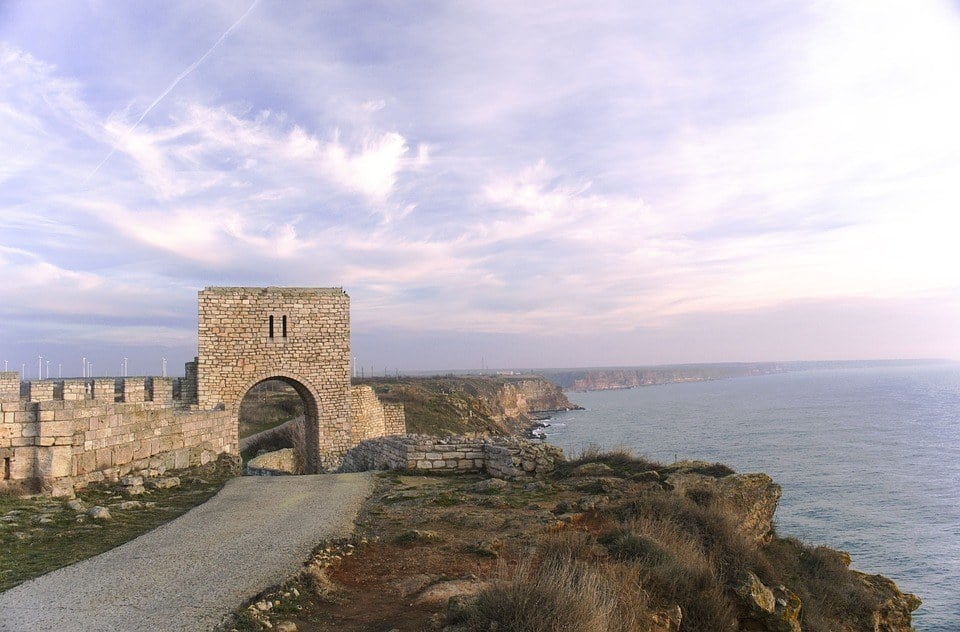
Bulgaria is a fantastic cheap European destination. However, in order to get your stay right, it’s important that you don’t find yourself in a sketchy town, playing with a language that you don’t understand. I’ve listed some places I think are top-notch for travelling, and you should find yourselves right at home!
- Sofia: Sofia is the capital city of Bulgaria, and one of the biggest and most popular ones. There’s an incredible amount of history and culture to soak up here. It’s a very modern and youthful city, with plenty of things to do and explore. There is an array of fantastic Bulgarian food to get stuck in with, and wonderful (powerful?) ex-soviet architecture.
- Varna: Varna is Bulgaria’s third-largest city, located on the Black Sea Coast. You get beaches, culture, stunning parks and an overall very laid-back vibe. During the warm summer months, Varna becomes a tourist hotspot, thanks to great restaurants, a pleasant temperature, and lively nightlife.
- Bansko: For the more adventurous and active backpackers, Bansko is the ideal place. Located in the southwest of Bulgaria, at the foot of the Pirin Mountains, it’s a gateway for some of the best hikes and ski slopes in the country. With a collection of brilliant hotels, fantastic hostels, and unbelievable views, it’s a place that is hard to beat!
Places to avoid in Bulgaria
Whilst safety is less of a major concern here than having fun, it will still pay to keep an eye out in certain sketchy areas. Use your common sense, and make smart decisions. Easy.
Unfortunately, there are parts of Bulgaria where it is worth taking extra caution. Like other countries, Bulgaria has its bad spots!
- Small side streets after dark: This is a no-brainer. If it looks empty and sketchy, simply avoid and stick to the main streets. Especially in larger cities, certain dimly lit roads have reputations.
- Sveta Nedelya Square: This area in Sofia is known for crimes, especially at night. While it’s fine during the day, avoid after dark.
- Red light district near Pliska Hotel: The name itself says it. It’s better to stay away, but there’s nothing to see for tourists anyway (well…). Either way, red-light areas and nightclubs tend to be high-concentration areas for violent crime.
- Resort areas and mountain ski resorts: Since (more) expensive holidays attract people with money, there is an incentive for pickpockets and scammers in these areas. Watch your belongings, and take care that no one can see your PIN! Sunny Beach especially has a slightly dodgy reputation.
You should take extra care when using ATMs Since it is predominantly a cash economy, you will have to do this at several times during your trip. Check the exchange rate before converting, and make sure that you aren’t being watched or followed. Best solution; change money inside a bank’s premises and remember your ID!
Keeping Your Money Safe in Bulgaria
One of the most common things to happen to you whilst travelling is losing your money. And let’s face it: the most annoying way for this to actually occur is when it’s stolen from you.
Petty crime is pretty much a problem all over the world.
The best solution? Get a money belt.
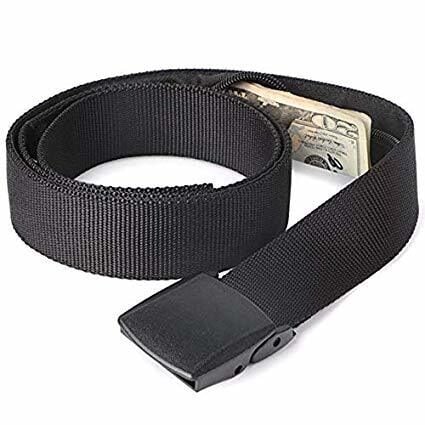
Stash your cash safely with this money belt. It will keep your valuables safely concealed, no matter where you go.
It looks exactly like a normal belt except for a SECRET interior pocket perfectly designed to hide a wad of cash, a passport photocopy or anything else you may wish to hide. Never get caught with your pants down again! (Unless you want to…)
Hide Yo’ Money!21 Top Safety Tips for Traveling to Bulgaria
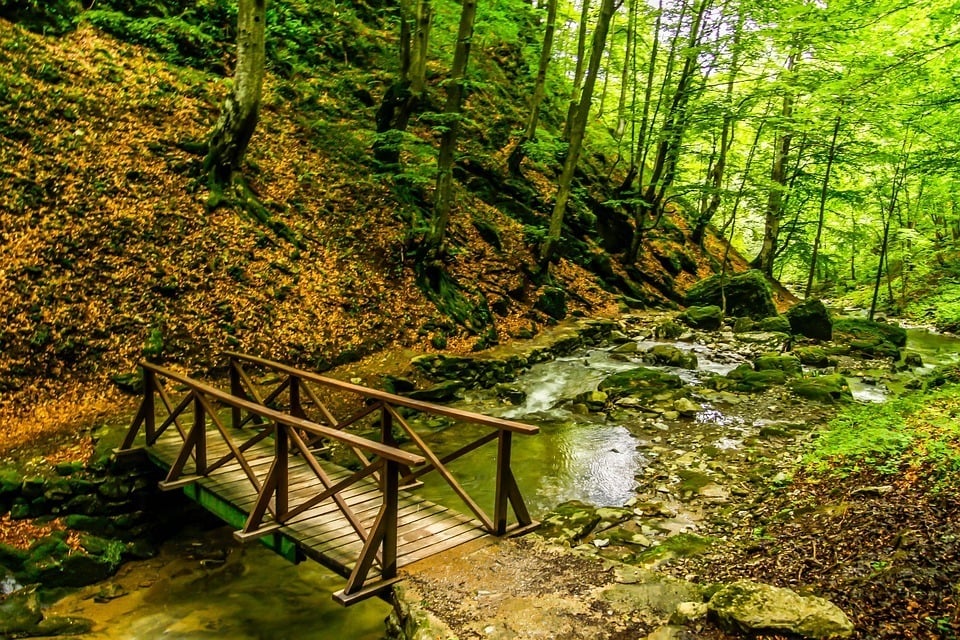
Bulgaria ranks highly as one of the world’s more “peaceful” countries and has a relatively low level of crime. However, that doesn’t mean that there aren’t issues tourists will face here – especially when it comes to visiting, and staying in, popular destinations.
Knowing how to travel safely anywhere is important, but here are some country-specific tips that should help you stay out of trouble! (and remember travel insurance)
- Be aware of pickpockets – these operate in crowded areas, large city centres, and transport hubs.
- Keep belongings close to you – having a bag that’s easily snatchable isn’t a good idea, make sure straps go across your body
- Consider a money belt – the best way to stop thieves in their tracks!
- Don’t take valuables to the beach – with thieves targeting tourists at beach resorts, having any valuables on the beach is not a good idea
- Make sure your hotel room is secure – there has been a rise in robbery from hotel rooms (especially in Sunny Beach). Make sure doors lock securely, windows close and can be locked, you have a safe, and that it’s in a good area of town
- Be wary of strip clubs – people overcharge wildly and use aggressive techniques in Sunny Beach, Sofia, Bansko and Borovets
- Don’t leave valuables in your car – break-ins to rental cars and cars with foreign number plates are common. Don’t leave important items in your car!
- Always keep an emergency stash of cash – Never keep all your cards/ currency in one place. And hide it all from thieves with a hidden money belt.
- Be careful where you park – tires can be deliberately punctured, the driver distracted, etc… it all ends with your stuff being stolen. Not a good move.
- Avoid stray dogs – feral dogs, especially in packs, are common and can be aggressive; they often have rabies
- Keep away from drugs – the penalties are severe
- Don’t get too drunk in public – “hooliganism” like this is treated severely, maybe more so than in your home country
- Be aware of public displays of affection for LGBTQ+ travellers – there isn’t much tolerance here, especially in more rural areas; even Sofia Pride needs heightened security and police presence
- Don’t take pictures of military installations or government buildings – even if they look cool (and some of them do). Ask permission before you do so; snapping a structure without asking is a sensitive issue
- Don’t cover your face in public – garments that cover your face are prohibited in public; there’s a fine if you’re caught doing so
- Cover yourself up in rural areas – arms and legs; tick-borne encephalitis is a risk, and mosquitoes can be rife, too
- Take a good medical kit with you – you never know when you might need it!
- Try not to look like a tourist – pickpockets don’t target locals, only tourists, so avoid looking obvious. See how other people are dressed and follow suit; casual is best, not designer sports gear, SLRs and gold jewellery
- Look confident – like you know where you’re going; looking lost will single you out as a tourist and, therefore, a target
- Speak a bit of Bulgarian – it’ll be good to know a few phrases to get around, ask directions
- Learn to read Cryllic script – even if you don’t know what the meaning is, being able to read place names and menus will be handy
- Understand head gestures – nodding is “no,” and shaking your head is “yes.” Why? We don’t know, but you should remember this!
- Get a sim card – not getting lost in cities, being able to call restaurants and accommodation. Sim cards change your life for the better.
As long as you make sure you try to blend in, don’t look obvious, and stay aware of your surroundings, you’ll be fine in Bulgaria.
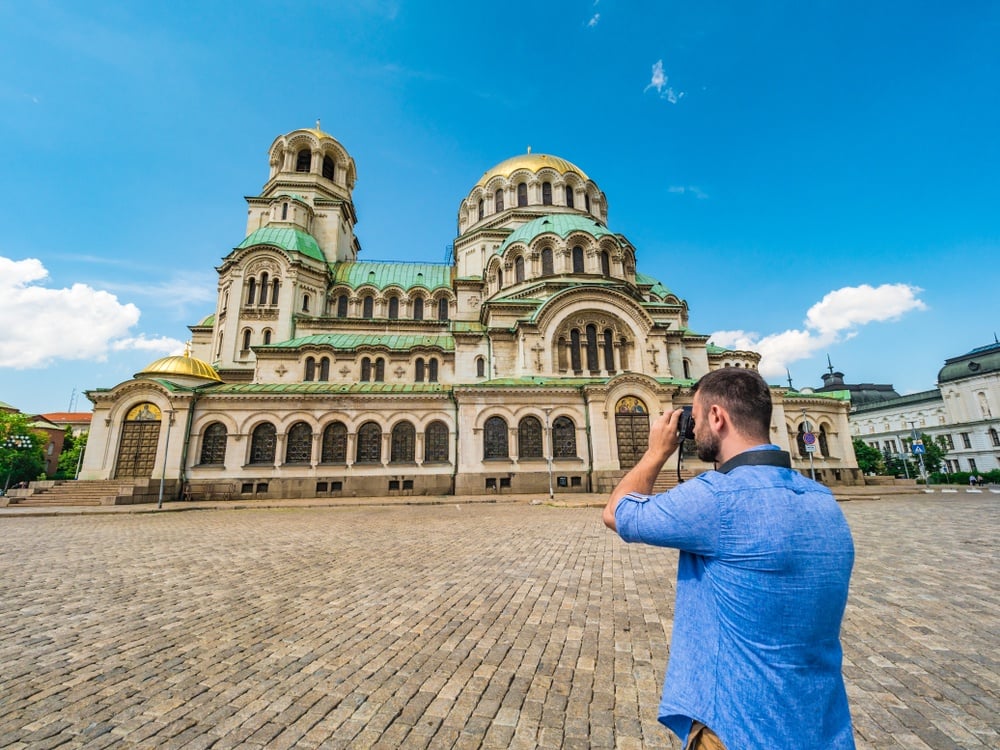
Travelling solo can be amazing anywhere in the world. It’s the ultimate in freedom, allowing you to travel at your own pace, see what you want, stay where you want and do what you want.
Bulgaria is a great place to head off on your next solo travel trip. There are loads of places to see, a ton of accommodation, and so many things to do. Like anywhere, travelling solo can come with some risks, however, so here are a few tips to make sure your trip goes smoothly.
- You should choose your accommodation wisely. Depending on what kind of thing you want, you could opt for a hostel (there are many in Sofia for example), where you can meet other solo travellers, get involved with group activities and have a lot of fun.
- Make full use of tours. In Plovdiv and Sofia, for example, you can get free tours which will help you get to grips with the city, learn about the place you’re travelling to, and talk to some locals.
- Speaking of which, don’t be afraid to talk to locals. Younger Bulgarians, especially in larger cities, generally can speak pretty good English and will be happy to chat to you, talk to you about your trip, and give you a few local tips, too.
- Plan your activities and what you want to do according to the season. Whilst Black Sea beaches are great in summer, they can be perhaps too crowded for you; then again, low season may be too cold or feel not buzzing enough for you.
- Don’t get too drunk. This just is not a good plan, especially if you are by yourself. You could put yourself at risk of being a victim of crime, not find your way home, or even find yourself in trouble with the authorities.
- If you want to meet other travellers, think about getting in touch with them before you visit. Hit up Facebook groups and other places online and ask questions about what people have done before, get ideas on itineraries, that sort of thing.
- Ask the staff at your hostel, hotel or guesthouse for their recommendations. Where is safe to go, where isn’t safe to go, what are good areas to explore, what local, hidden gems they might know about that your guidebook may not have any information on at all. Locals know the score.
- Don’t travel around with too much stuff. Not only is this not fun (trust us), but lugging many bags around with you at one time could put you at risk of being targeted by petty criminals.
- Keep people in the loop. Make sure your relatives and friends back home know what your travel plans are. Consider sharing your itinerary with them and tell them if it changes. Having somebody know where you are and what you’re doing there (and when) is much safer than going off grid.
- Have different ways to access your money. Savings are all well and good, but you should consider opening another bank account so that if you lose one card, you have a back-up pool of money to dip into. At the same time, an emergency credit card may be a good idea for, well, emergencies.
- Don’t take anything valuable to the beach and definitely don’t leave anything unattended on the beach. If you’re by yourself and you go swimming, even something like leaving your phone in your shoes is not a good idea.
- Be careful getting into taxi’s. Bulgaria has a history of fake taxi drivers taking you for a ride you didn’t ask for, so check carefully for a meter, and that someone knows where you’re going.
Bulgaria is actually a really fun country to travel to by yourself. If you want to get to know other people doing what you’re doing, then you will really benefit from the relatively large number of solo (and groups of) travellers making their way through Bulgaria. Don’t forget travel insurance though!
Is Bulgaria Safe for Solo Female Travellers?
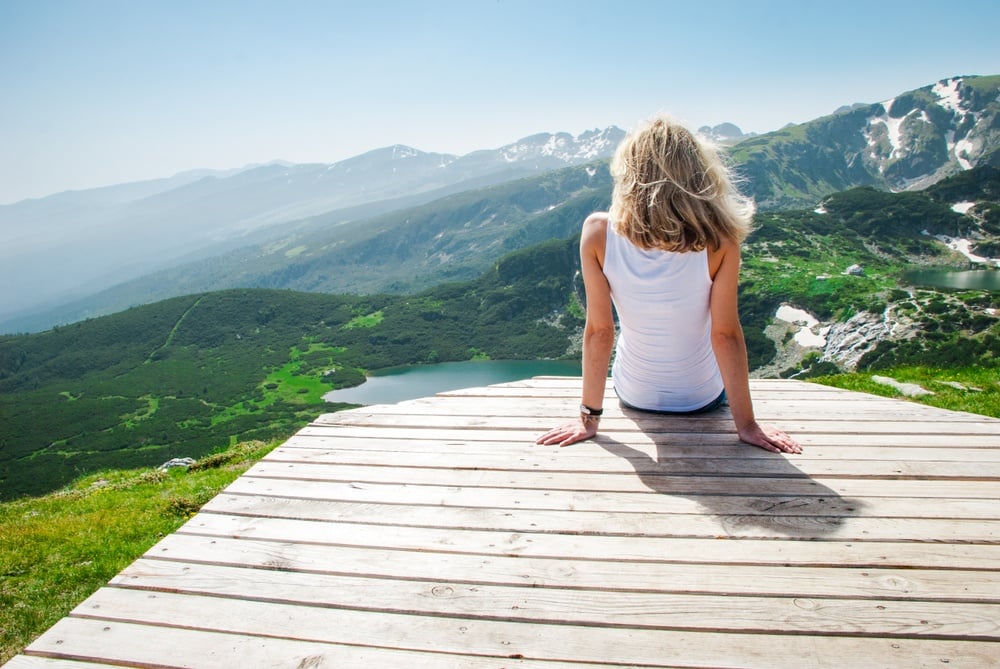
Like pretty much anywhere in the world, the very basic things all female travellers should know apply. Additionally, there are a couple of tricks you might not have thought of when it comes to staying safe in Bulgaria.
Here are our top tips for solo female travellers.
- Bulgarian women don’t tend to go out to bars and nightclubs by themselves. With this in mind, if you want to go out as a solo foreign lady, you should be aware that you will probably attract some attention and may get a few unwanted advances. If you want to avoid that, find some travel buddies to go out with.
- Speaking of which, a good way to meet like-minded travellers – male or female – is to stay at the right accommodation. The key here is research, mainly reading reviews of hostels and hotels that have been written by other female travellers.
- Dress to fit in wherever you are. If you’re staying at a beach resort or in a big city, then things are more modern and free. In the countryside, however, women in Bulgaria tend to cover up in more modest clothing. Take a look around, see what other ladies your age are wearing, and try to follow suit – a good way to not get unwanted attention.
- Be culturally sensitive. In some churches and religious sites for example, women have to cover their head (or hair) and have their shoulders and knees covered. These sorts of coverings are usually on offer at places of worship for women to borrow, but having your own scarf to quickly throw on could come in handy.
- Do not walk around by yourself at night time. No matter how short the journey, walking by yourself at night in an unfamiliar place, in a country you’ve never visited before, is not a clever thing to do. Don’t take the risk and make sure you either have someone to walk home (or around) with or simply get a cab.
- Get yourself on a tour. There’s nothing wrong with hiring your own guide or going on a tour and can in fact be a good way to get to grips with a country, get some insider knowledge, see things you may not have seen otherwise, and to generally make you feel more comfortable. You may get to meet other likeminded travellers, too.
- Be firm with people who may approach you with unwanted attention. Men in Bulgaria can be quite “macho” and might whistle at you, be loud about it and make comments/compliments at you as you pass you by. These are best ignored, but for people who approach you directly, especially when you’re out at bar or on the beach, a firm no should be enough.
- Don’t tell people every detail about your trip– or your life. No stranger needs to know anything about you, really, so if you don’t feel comfortable telling you or the questions are a bit searching, then know that it’s perfectly fine to lie.
- Make sure you have good apps downloaded on your phone to help you in a sticky situation. Things like sharing your location with somebody on Google Maps, having Google Translate, having emergency numbers saved in your contacts (with a symbol at the front so they appear at the top of your contacts), and even an offline maps app like Maps.me – it’s all very useful.
In general, Bulgaria is a pretty safe country for solo female travellers. There are a ton of super interesting sights, excellent experiences and amazing adventures for you to get stuck into without you having to worry all that much about your safety. It’s a well trodden destination.
Having said that, however, it’s all too common for women to be looking over their shoulders – wherever you are in the world, and especially if you are travelling solo. One of the top tips would be to simply not put yourself into risky situations, so trust your gut.
Where to Start Your Travels in Bulgaria
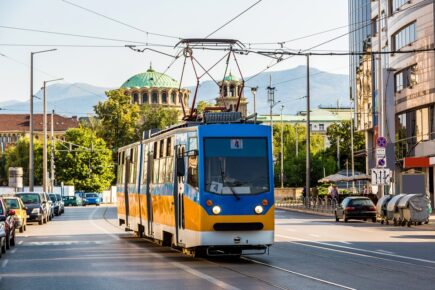
Sofia
Bulgaria’s capital city, Sofia, shouldn’t be overlooked by travellers. This city is filled with important buildings and stunning attractions and has a youthful energy that’s impossible to deny!
Is Bulgaria Safe for Families?
Families are a huge part of Bulgarian culture, and you will be welcomed warmly travelling with your family. Bulgaria has been a firm favourite for many European families looking for a budget beach holiday – so it’s already geared towards families.
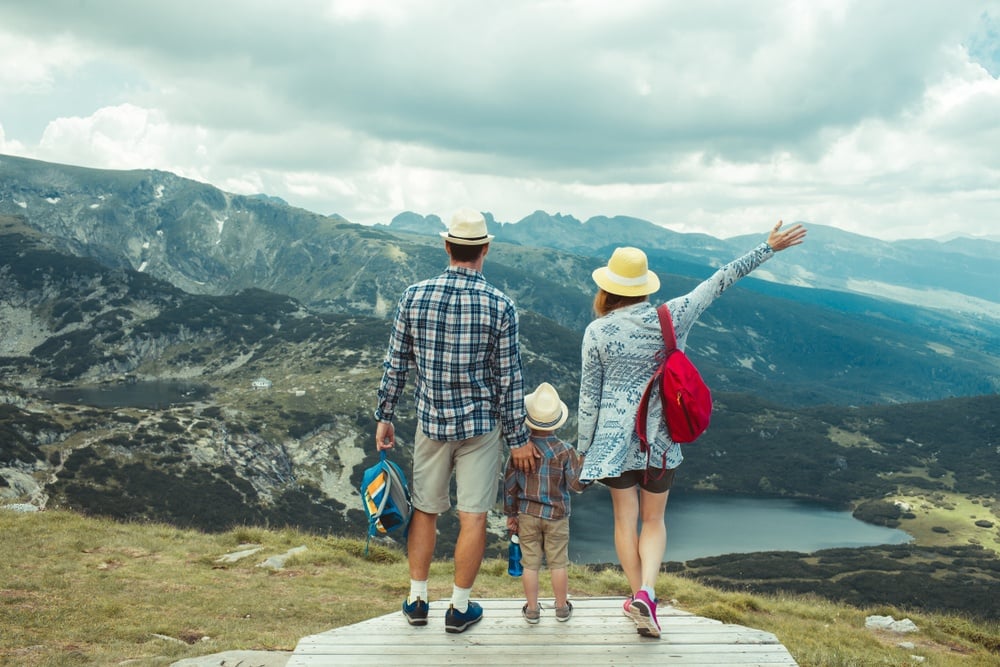
The main problems you will probably face when you’re travelling around Bulgaria with your children are natural. Protecting them from the sun (slather on that sunscreen!) and covering their arms and legs to stop ticks and mosquitoes in their tracks, are two of the most common problems you will face.
It’s important to tell your children that they shouldn’t go anywhere near stray dogs wandering around, as rabies has not been eradicated.
Getting Around Bulgaria
Public transport in Bulgaria is generally pretty safe, but it obviously varies throughout the country. For example, in Sofia, there’s the metro, trams and buses; other towns barely have a bus service.
Trains can be quite slow (especially compared to inter city buses). Learning, or reading, some Cyrillic can definitely help you discern where you’re going and which train services are faster.
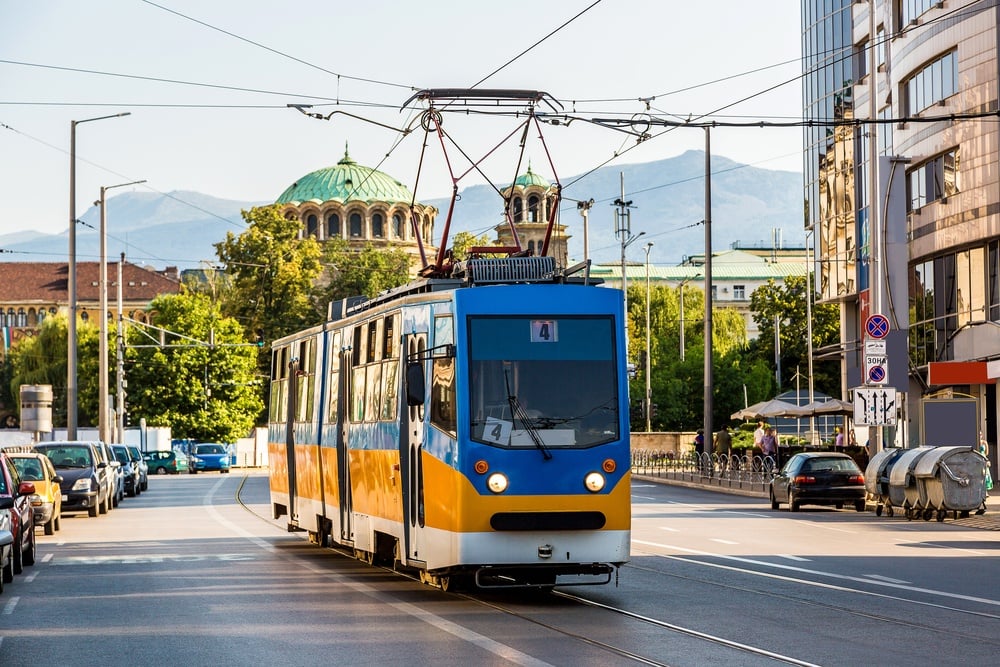
A good tip for using the Bulgaria State Railways is to look online to find out about routes and fares.
Another form of transport are the matrushkas that shuttle people between city centres and suburbs. More like shared taxis, these run along set routes and can be squashy and sketchy but very cheap.
Buses can be found between major cities, and uber is active in the country. There are generally good transport links between places, but it can be hard if you don’t speak Bulgarian.
Crime in Bulgaria
The crime rate in Bulgaria is actually super low, which is good! However, you should stay aware of potential muggings, pickpocket hotspots, and getting caught in scams. There have been reports of aggressive confrontations in strip clubs after clients refuse to pay an inflated bill, and problems with ATMS.
The U.S travel authorities rate Bulgaria as level 1, meaning you should take normal precautions to ensure your own safety. Use your common sense, make good decisions and be okay with noping out of a situation. Visits to Bulgaria are vastly trouble free.
Laws in Bulgaria
Bulgaria has pretty standard local laws- don’t do anything traditionally illegal and you won’t have cause for concern. When buying property, consider hiring expert legal advice, since there have been cases of buyers being defrauded.
What to Pack For Your Bulgaria Trip
Everyone’s packing list is going to look a little different, but here are a few things I would never want to travel to Bulgaria without…
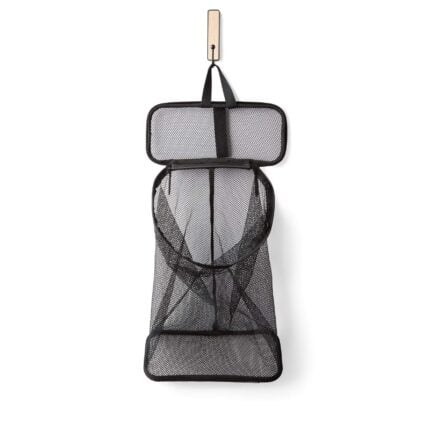
Hanging Laundry Bag
Trust us, this is an absolute game changer. Super compact, a hanging mesh laundry bag stops your dirty clothes from stinking, you don’t know how much you need one of these… so just get it, thank us later.
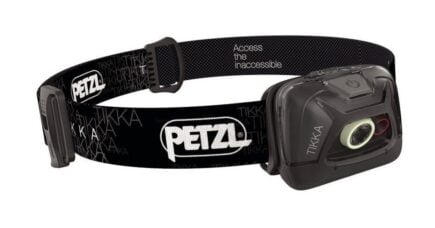
Head Torch
A decent head torch could save your life. If you want to explore caves, unlit temples, or simply find your way to the bathroom during a blackout, a headtorch is a must.
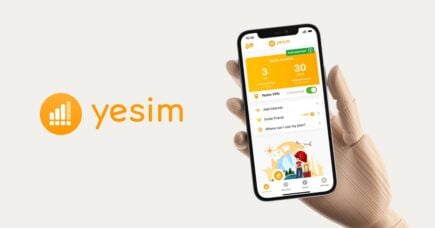
SIM card
Yesim stands as a premier eSIM service provider, catering specifically to the mobile internet needs of travellers.
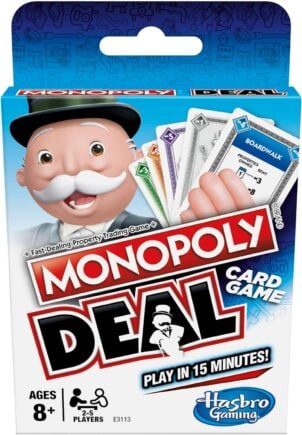
Monopoly Deal
Forget about Poker! Monopoly Deal is the single best travel card game that we have ever played. Works with 2-5 players and guarantees happy days.
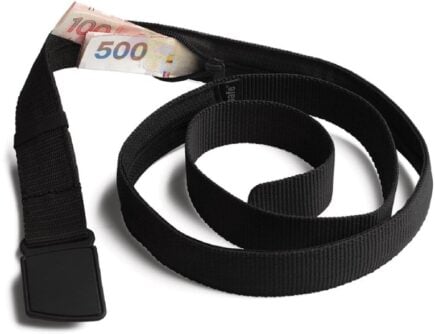
Money Belt
This is a regular looking belt with a concealed pocket on the inside – you can hide up to twenty notes inside and wear it through airport scanners without it setting them off.
Getting Insured BEFORE Visiting Bulgaria
ALWAYS sort out your backpacker insurance before your trip. There’s plenty to choose from in that department, but a good place to start is Safety Wing.
They offer month-to-month payments, no lock-in contracts, and require absolutely no itineraries: that’s the exact kind of insurance long-term travellers and digital nomads need.
SafetyWing is cheap, easy, and admin-free: just sign up lickety-split so you can get back to it!
Click the button below to learn more about SafetyWing’s setup or read our insider review for the full tasty scoop.
FAQs on Bulgaria’s Safety
Planning a safe trip to Bulgaria can get quite overwhelming. That’s why we’ve listed and answered the most frequently asked questions on safety in Bulgaria.
So, is Bulgaria Safe?
Bulgaria is a very safe country. It scores high marks on the Global Peace Index of 2020, has a generally low level of serious crime, no real political upsets, and a complete lack of terrorist threat.
There are problems in Bulgaria, however. The resorts along the Black Sea can be all kinds of crazy and not in a good way (case in point: Sunny Beach). There is an issue with thieves targeting tourists. The roads here can be bad, and taxi drivers can be sketchy.
These are the things you have to deal with when you’re Bulgaria. The best way to avoid most of them is to not take yourself to the tackiest, craziest beach resorts; try your best to not look like a tourist when you’re here (smartphones away, no SLRs, casual clothes, please); and generally use your smarts.
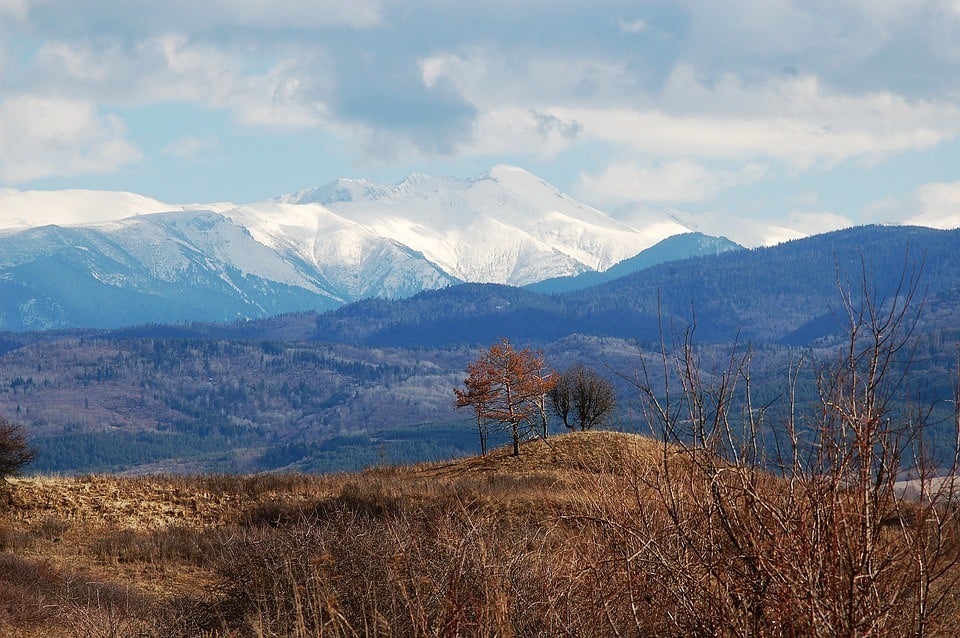
Looking for more info on traveling to Bulgaria?
- Let me help you choose where to stay in Sofia
- Swing by one of these fabulous festivals
- Check out my favorite Airbnbs in the centre of all the action
- Plan the rest of your trip with our fantastic backpacking Bulgaria travel guide!
- Get inspired by these EPIC bucket list adventures!
Disclaimer: Safety conditions change all over the world on a daily basis. We do our best to advise but this info may already be out of date. Do your own research. Enjoy your travels!

And for transparency’s sake, please know that some of the links in our content are affiliate links. That means that if you book your accommodation, buy your gear, or sort your insurance through our link, we earn a small commission (at no extra cost to you). That said, we only link to the gear we trust and never recommend services we don’t believe are up to scratch. Again, thank you!



